
-
-
-
Advance your career
In 3-9 months, gain the skills to break into a new career or take your career to the next level.
10th
View allADVANCED MANAGEMENT PROGRAMME (MANUFACTURING AND OPERATIONS)
View allAGNIVEER MR
View allAGNIVEER SSR
View allALLAHABAD HC RO/ARO
View allAnthropology (B.Sc Anthropology)
View allArtificial Intelligence
View allASSOCIATION OF CHARTERED CERTIFIED ACCOUNTANTS [ACCA]
View allB.A (Hons.) Business Economics
View allB.A Geography
View allB.A Hons (English)
View allB.A. - Public Administration
View allB.A. Economics
View allB.A. English
View allB.A. in Fashion and Textile Design
View allB.A. in Jewellery and Accessory Design
View allB.A. in Political Science
View allB.A. in Visual Communication
View allB.A. Journalism and Mass Communication
View allB.A. LLB
View allB.Com (Hons.)
View allB.Ed or Bachelor of Education
View allB.Ed or Bachelor of Education in Physical Science
View allB.Sc - Computer Science
View allB.Sc - Electronics
View allB.Sc - Forensic Science
View allB.Sc - Genetics
View allB.Sc - Geology
View allB.Sc - Home Science
View allB.Sc - Horticulture
View allB.Sc - Life Sciences
View allB.Sc - Microbiology
View allB.Sc - Statistics
View allB.Sc - Zoology
View allB.Sc in Animation
View allB.Sc in Physiology
View allB.Sc LLB (B.Sc LLB)
View allB.Sc. (Hons.) Chemistry
View allB.Sc. (Hons.) Computer Science
View allB.Sc. (Hons.) Mathematics
View allB.Sc. (Hons.) Physics
View allB.Sc. Agriculture
View allB.Sc. Biochemistry
View allB.Sc. Biotechnology
View allB.Sc. Nursing
View allB.Tech - Automobile Engineering
View allB.Tech - Biochemical Engineering
View allB.Tech - Ceramic Engineering
View allB.Tech - Genetic Engineering
View allB.Tech - Instrumentation Engineering
View allB.Tech - Mechatronics Engineering
View allB.Tech - Mining Engineering
View allB.Tech - Production Engineering
View allB.Tech - Telecommunication Engineering
View allB.Tech - Textile Engineering
View allB.Tech : Mechanical Engineering
View allB.Tech-Artificial Intelligence
View allB.Tech-Chemical Engineering
View allB.Tech-Civil Engineering
View allB.Tech-Computer Science Engineering
View allB.Tech-Electrical Engineering
View allB.Tech-Electronics and Communications Engineering
View allB.Tech-Mechanical Engineering
View allBA LLB (BA LLB)
View allBachelor of Accounting and Finance (BAF)
View allBachelor of Audiology & Speech Language Pathology (BASLP)
View allBachelor of Banking & Insurance (BBI)
View allBachelor of Business Administration (BBA)
View allBachelor of Computer Applications (BCA)
View allBachelor of Design (B.Des)
View allBachelor of Education (B.Ed)
View allBachelor of Education (B.Ed) in History
View allBachelor of Education (B.Ed) Psychology
View allBachelor of Education (BE.d) English
View allBachelor of Education (BEd) Commerce
View allBachelor of Education (BEd) in Physical Education
View allBachelor of Education in Hindi
View allBachelor of Education in Tamil [B.Ed] (Tamil)
View allBachelor of Elementary Education (B.El.Ed)
View allBachelor of Financial Markets (BFM)
View allBachelor of Fine Arts
View allBachelor of Management Studies (BMS)
View allBachelor of Mass Communication (BMC)
View allBachelor of Mass Media (BMMC)
View allBachelor of Multimedia Communication (BMMC)
View allBachelor of Optometry
View allBachelor of Optometry (BOPTM)
View allBachelor of Physical Education (B.P.Ed)
View allBachelor of Tourism and Travel Management (BTTM)
View allBachelor of Visual Communication (B.V.C)
View allBachelor of Visual Communication (BVC)
View allBachelor of Vocation (B.Voc) in Software Development
View allBachelors in Banking and Insurance (BBI)
View allBachelors of Commerce and Bachelor of Legislative Law (B.Com LLB)
View allBBA LLB
View allBEd Political Science
View allBIHAR CGL TEST SERIES
View allBIHAR CIVIL COURT
View allBIHAR DAROGA
View allBIHAR PROHIBITION CONSTABLE
View allBOB PO
View allBOB SO
View allBOI SO
View allBPSC HEAD MASTER
View allBPSC SANITARY & WM
View allBusiness Analytics
View allCANARA BANK PO
View allCAT
View allCAT Exam
View allCBI SO
View allCBSE 5
View allCBSE 7
View allCBSE 1
View allCBSE 11th
View allCBSE 12TH
View allCBSE 2
View allCBSE 3
View allCBSE 4
View allCBSE 6
View allCBSE 8
View allCBSE 9TH
View allCBSE CTET
View allCDS
View allCERTIFICATE IN BUSINESS ANALYTICS
View allCertificate Course in Accounting
View allCertificate Course in Banking
View allCERTIFICATE COURSE IN BANKING
View allCERTIFICATE COURSE IN BUSINESS ANALYTICS
View allCERTIFICATE COURSE IN C++
View allCERTIFICATE COURSE IN COMMUNICATIVE ENGLISH
View allCERTIFICATE COURSE IN COMPUTER APPLICATION [CCA]
View allCertificate Course in Fashion Design
View allCERTIFICATE COURSE IN FINANCIAL ACCOUNTING & TAXATION [CCFAT]
View allCERTIFICATE COURSE IN FRENCH
View allCERTIFICATE COURSE IN FUNCTIONAL ENGLISH
View allCERTIFICATE COURSE IN GERMAN
View allCERTIFICATE COURSE IN INFORMATION TECHNOLOGY
View allCertificate Course in Interior Design
View allCERTIFICATE COURSE IN INTERIOR DESIGN
View allCertificate Course in JAVA
View allCERTIFICATE COURSE IN JAVA
View allCERTIFICATE COURSE IN JOURNALISM
View allCERTIFICATE COURSE IN PHOTOGRAPHY
View allCERTIFICATE COURSE IN PHYSIOTHERAPY
View allCERTIFICATE COURSE IN SPANISH
View allCERTIFICATE COURSE IN SPOKEN ENGLISH
View allCertificate Course in Stock Market
View allCERTIFICATE COURSE IN STOCK MARKET
View allCertificate Course in Tally
View allCERTIFICATE COURSE IN TALLY
View allCERTIFICATE COURSE IN YOGA
View allCertificate courses in C ++
View allCERTIFICATE IN ACCOUNTING
View allCertificate in Animation
View allCERTIFICATE IN ANIMATION
View allCertificate in Auto CAD
View allCERTIFICATE IN AUTO CAD
View allCertificate in CAD
View allCERTIFICATE IN CAD
View allCertificate in Cloud Computing
View allCERTIFICATE IN CLOUD COMPUTING
View allCertificate in Computer Application
View allCERTIFICATE IN COSMETOLOGY
View allCERTIFICATE IN DISASTER MANAGEMENT [CDM]
View allCERTIFICATE IN ENGLISH
View allCERTIFICATE IN HINDI
View allCERTIFICATE IN HUMAN RESOURCES
View allCertificate in Information Technology
View allCERTIFICATE IN INSURANCE SERVICES
View allCERTIFICATE IN LABORATORY TECHNIQUES [CPLT]
View allCERTIFICATE IN PROJECT MANAGEMENT
View allCERTIFICATE IN TOURISM AND TRAVEL MANAGEMENT
View allCERTIFICATE IN WEB DESIGNING
View allCertificate in Web Designing.
View allCERTIFICATE PROGRAM IN SUPPLY CHAIN MANAGEMENT
View allCERTIFICATE PROGRAMME IN SALES AND MARKETING
View allCERTIFIED COURSE IN FOOD AND NUTRITION
View allCERTIFIED FINANCIAL PLANNER [CFP]
View allCHARTERED ACCOUNTANT
View allChartered Financial Analyst
View allchinese
View allCISF CONSTABLE/TRADESMEN
View allCIVIL SERVICES
View allCLAT
View allCLAT EXAMS
View allCloud Computing
View allCOMBINED GEO-SCIENTIST
View allCOMBINED MEDICAL SERVICES
View allContent Writing
View allCraftsmanship Course in Food Production
View allCRPF ASI/HC
View allCRPF CONSTABLE TRADESMAN
View allCRPF SI & ASI
View allCS (Company Secretary)
View allCUET
View allCyber Security
View allD.EL.Ed.
View allData Analytics
View allData Science
View allDigital Marketing
View allDiploma in 3D Animation
View allDiploma in Advertising and Marketing
View allDiploma in Airline, Travel and Tourism Management
View allDiploma in Animation and Multimedia
View allDIPLOMA IN ARCHITECTURE ENGINEERING
View allDIPLOMA IN AUTOMOBILE ENGINEERING
View allDiploma in Bakery and Confectionery
View allDIPLOMA IN BIOMEDICAL ENGINEERING
View allDIPLOMA IN CHEMICAL ENGINEERING
View allDIPLOMA IN CIVIL ENGINEERING
View allDiploma in Communicative English
View allDIPLOMA IN COMPUTER ENGINEERING
View allDIPLOMA IN COMPUTER SCIENCE AND ENGINEERING
View allDIPLOMA IN DENTAL HYGIENIST
View allDIPLOMA IN DENTAL MECHANICS
View allDiploma in education
View allDIPLOMA IN ELECTRICAL & ELECTRONICS ENGINEERING
View allDIPLOMA IN ELECTRICAL ENGINEERING
View allDIPLOMA IN ELECTRONICS ENGINEERING
View allDiploma in elementary education
View allDiploma in Engineering
View allDiploma in Event Management
View allDIPLOMA IN FINE ARTS
View allDiploma in Food and Beverage Services
View allDiploma in Gemology
View allDiploma in Hotel Management (DHM)
View allDiploma in Information Technology
View allDIPLOMA IN INFORMATION TECHNOLOGY
View allDiploma in Interior Designing
View allDiploma in Journalism and Mass Communication (DJMC)
View allDIPLOMA IN MECHANICAL ENGINEERING
View allDIPLOMA IN MECHATRONICS
View allDiploma in Medical Lab Technology
View allDiploma in Medical Laboratory Technology (DMLT)
View allDIPLOMA IN MINING ENGINEERING
View allDiploma in Multimedia
View allDiploma in Nursing
View allDiploma in Nursing Care Assistant (DNCA)
View allDiploma in Nutrition and Dietetics
View allDiploma in Office Management
View allDIPLOMA IN PETROLEUM ENGINEERING
View allDiploma in Photography
View allDiploma in Physiotherapy
View allDIPLOMA IN PRODUCTION ENGINEERING
View allDiploma in Radiological Technology
View allDiploma in Rural Healthcare
View allDiploma in Scriptwriting/Creative Writing
View allDiploma in Sound Recording
View allDiploma in Travel & Tourism
View allDiploma in Visual Merchandising
View allDiploma in X-Ray Technician
View allEmail-Marketing
View allEPFO
View allFashion Designer
View allFCI MANAGEMENT TRAINEE
View allFEDERAL BANK PO
View allFull-Stack Developer
View allGATE
View allGraphic Design
View allHARCO BANK
View allHPSC PGT
View allHSSC Canal Patwari
View allHSSC GRAM SACHIV
View allIB SA/EXE & MTS/GEN
View allIBPS CLERK
View allIBPS PO
View allIBPS RRB OFFICE ASSISTANT
View allIBPS RRB OFFICER SCALE 1
View allIBPS SO Exam
View allIBPS Specialist Officer Exams
View allICAR
View allIIBF JE
View allINDIAN AIRFORCE APPRENTICE
View allINDIAN BANK COST GUARD (GD/DB)
View allINDIAN BANK PO
View allINDIAN BANK SO
View allINDIAN ECONOMIC SERVICE
View allINDIAN ER.SERVICES
View allINDIAN FOREST SERVICE
View allINDIAN NAVY AA/SSR
View allIPPB
View allJH POLICE RO
View allJK BANK PO
View allJK POLICE CONSTABLE
View allJob Oriented
View allJSSC EXCISE AND PROHIBITION
View allKG
View allLAKHSMI VILAS BANK PO
View allLDCE
View allLIC AAO
View allLIC ADO
View allLIC HFL
View allLL.M - Criminal Law
View allLL.M - Cyber Law
View allLL.M - International Law
View allLL.M - Labour Law
View allM.A. - Public Administration
View allM.A. in Economics
View allM.A. in English
View allM.A. Political Science
View allM.A. Rural Development
View allM.A.in History
View allM.Sc - Geoinformatics
View allMachine Learning
View allMaster of Education (M.Ed)
View allMaster of Law (LL.M)
View allMaster of Mass Communication (MMC)
View allMasters in Journalism and Mass Communication (MJMC)
View allMasters of Business Administration (MBA)
View allMAT
View allMBA - Communication Management
View allMBA - Customer Relationship Management (MBA CRM)
View allMBA - Environmental Management
View allMBA - Healthcare & Hospital Management
View allMBA - Hospitality Management
View allMBA - Logistics and Supply Chain Management
View allMBA - Materials Management
View allMBA - Media Management
View allMBA - Natural Resource Management
View allMBA - Operations Management
View allMBA - Project Management
View allMBA - Retail Management
View allMBA - Risk Management
View allMBA - Rural Development Management
View allMBA - Sales Management
View allMBA - Sports Management
View allMBA - Sustainable Management
View allMBA - Technology Management
View allMBA-Finance
View allMBA-Hr
View allMBA-Insurance
View allMBA-IT
View allMBA-Marketing
View allMCM: Masters of Computer Management
View allMP PATWARI
View allMP PSC
View allMP TET
View allMPPSC FOREST SERVICE
View allNAINITAL BANK
View allNDA & NA
View allNIOS 10
View allNIOS 11
View allNIOS 12
View allNIOS D.EL.ED.
View allNTPC CBT
View allOICL RECRUITMENT
View allOSSSC RECRUITMENT
View allPATNA HC STENO
View allPGP - Tax Management
View allPost Graduate Diploma in Technical Writing
View allProgramming
View allProject Management
View allRBI ASSISTANT
View allRBI Grade B Exam
View allRRB ASSISTANT LOCO PILOT
View allRRB Group D.
View allRSCB
View allRSMSSB COMPUTOR
View allRSMSSB FOREST GUARD
View allRSMSSB INFORMATICS ASSISTANT
View allRSMSSB JE
View allRSMSSB LAB TECH
View allRSMSSB LIB
View allRSMSSB PATWARI
View allRSMSSB PHARMACIST
View allSBI Clerk
View allSBI Clerk 2024
View allSBI PO
View allSIDBI GRADE A
View allSIDBI GRADE B
View allSocial Media Marketing
View allSoft Skills
View allSoftware Development.
View allSSC SELECTION POST
View allUIIC ASSISTANT
View allUPPSC ASST.PRO
View allUPPSC NURSE
View allUPPSC PROGRAMMER
View allUPSSSC ATA
View allUPSSSC INSTRUCTOR
View allUPSSSC VDO
View allVCBL PO
View allWealth Management
View allWeb Designing
View allXAT
View allDiploma in Cosmetology
View all
-
-
-
Advance your career
In 3-9 months, gain the skills to break into a new career or take your career to the next level.
-
-
-
Advance your career
In 3-9 months, gain the skills to break into a new career or take your career to the next level.
-
-
-
Advance your career
In 3-9 months, gain the skills to break into a new career or take your career to the next level.
Arts And Humanities.
No courses found
Business
View allCertificate
View allComputer Science
No courses found
Graphic Design
No courses found
Health
No courses found
Information Technology
View allLanguage Learning
No courses found
Math And Logic
No courses found
Physical Science And Engineering
No courses found
Social Science
No courses found
Soft Skills
No courses found
-
-
-
Find your new career
Breakthrough pricing on 100% online degrees designed to fit into your life.
CERTIFICATE IN ANIMATION
No subjects found
Get started
-
-
-
Find your new career
Breakthrough pricing on 100% online degrees designed to fit into your life.
CERTIFICATE COURSE IN COMMUNICATIVE ENGLISH
No subjects found
CERTIFICATE COURSE IN FRENCH
No subjects found
CERTIFICATE COURSE IN FUNCTIONAL ENGLISH
No subjects found
CERTIFICATE COURSE IN GERMAN
No subjects found
CERTIFICATE COURSE IN SPANISH
No subjects found
CERTIFICATE COURSE IN SPOKEN ENGLISH
No subjects found
CERTIFICATE IN ENGLISH
No subjects found
CERTIFICATE IN HINDI
No subjects found
CERTIFICATE IN INSURANCE SERVICES
No subjects found
DIPLOMA IN FINE ARTS
No subjects found
Get started
-
-
-
Find your new career
Breakthrough pricing on 100% online degrees designed to fit into your life.
No courses found
Get started
-
-
-
Find your new career
Breakthrough pricing on 100% online degrees designed to fit into your life.
Certificate Course In Accounting
No subjects found
Certificate Course In Banking
No subjects found
Certificate Course In Interior Design
No subjects found
Certificate Course In Stock Market
No subjects found
Certificate Course In Tally
No subjects found
Get started
-
-
-
Find your new career
Breakthrough pricing on 100% online degrees designed to fit into your life.
Certificate Course In Fashion Design
No subjects found
Certificate In Auto CAD
No subjects found
Certificate In CAD
No subjects found
Chinese
No subjects found
Get started
-
Goals
Departments
-
English
Academic |
NIOS 10
The NIOS Class 10 English course aims to improve the language proficiency of students in both written and spoken English. The course is designed to help students develop their skills in reading, writing, listening, and speaking.

Runali Deb Roy
Last Update : 13 May 2023
CBSE 10th Grade English Course | Matriye Academy
The NIOS Class 10 English course aims to improve the language proficiency of students in both written and spoken English. The course is designed to help students develop their skills in reading, writing, listening, and speaking. The syllabus covers various aspects of the English language, including grammar, vocabulary, comprehension, and communication.
The course is divided into two parts: Part A and Part B. Part A focuses on reading and writing skills, while Part B focuses on speaking and listening skills. The course emphasizes the development of critical thinking skills and encourages students to express their thoughts and ideas clearly and effectively.
Some of the key topics covered in the NIOS Class 10 English course include:
1. Parts of speech
2. Tenses
3. Active and passive voice
4. Direct and indirect speech
5. Writing skills such as essay writing, letter writing, and story writing
6. Reading comprehension
7. Vocabulary development
8. Public speaking skills
Overall, the NIOS Class 10 English course is designed to improve student's language skills, enhance their understanding of English grammar, and enable them to communicate effectively in both written and spoken English.
Join Our CBSE 10th Grade English Course for Success
- Reading comprehension: You will learn how to read and understand various types of texts, including prose, poetry, and fiction
- Writing skills: You will develop your writing skills and learn how to write different types of texts, including essays, letters, and stories.
- Grammar: You will learn the fundamentals of English grammar, including parts of speech, tenses, active and passive voice, and direct and indirect speech.
- Vocabulary development: You will learn how to expand your vocabulary and use words effectively in your writing and speaking.
- Communication skills: You will develop your communication skills and learn how to express yourself effectively in spoken English.
- Public speaking: You will learn how to deliver effective speeches and presentations, including techniques for public speaking and persuasive communication.
Course Content
1. Prose:
- The Third Level by Jack Finney
- The Tiger King by Kalki
- Journey to the End of the Earth by Tishani Doshi
- The Letter by Dhumaketu
2. Poetry:
- The Frog and the Nightingale by Vikram Seth
- Mirror by Sylvia Plath
- Not Marble, Nor the Gilded Monuments by William Shakespeare
- Ozymandias by Percy Bysshe Shelley
3. Supplementary Reader:
- Diary of a Young Girl by Anne Frank
4. Writing Section:
- Letter Writing
- Essay Writing
- Story Writing
1. Reading Section:
- An Introduction to the Study of Literature
- The Adventures of Tom Sawyer by Mark Twain
2. Writing Section:
- Story Writing
- Essay Writing
- Letter Writing
3. Grammer:
- Parts of Speech
- Tenses
- Active and Passive Voice
- Direct and Indirect Speech
4. Supplementary Reader:
- Choice of Short Stories by Various Authors
5. Speaking and Listening:
- Listening to a passage and answering questions
- Speaking on a given topic
- Role play
NIOS Class 10 English
The NIOS Class 10 English course is designed to help students improve their language skills in reading, writing, speaking, and listening. The course is divided into two parts: Part A and Part B.
Part A of the course focuses on reading and writing skills. Students will read and analyze various texts, including prose, poetry, and fiction. They will also develop their writing skills by learning how to write different types of texts, such as essays, letters, and stories. Part A also includes grammar lessons to help students understand the basic rules of English grammar, including parts of speech, tenses, active and passive voice, and direct and indirect speech.
Part B of the course focuses on speaking and listening skills. Students will learn how to communicate effectively in spoken English, including techniques for public speaking and persuasive communication. Part B also includes reading and writing exercises to further develop students' language skills. Additionally, students will be exposed to a variety of short stories and literary texts to improve their reading comprehension and appreciation of literature.
Throughout the course, students will develop their critical thinking skills and be encouraged to express their thoughts and ideas clearly and effectively. The NIOS Class 10 English course aims to improve student's language proficiency and enable them to communicate effectively in both written and spoken English.
Course Description
The NIOS Class 10 English course is designed to help students improve their English language proficiency in reading, writing, speaking, and listening. The course is divided into two parts: Part A and Part B, each of which focuses on different aspects of the English language.
Part A of the course begins with the study of prose, where students will read and analyze four different prose pieces, including "The Third Level" by Jack Finney, "The Tiger King" by Kalki, "Journey to the End of the Earth" by Tishani Doshi, and "The Letter" by Dhumaketu. These pieces of literature will introduce students to different writing styles and techniques, as well as help them develop their reading comprehension skills.
Part A also includes the study of poetry, where students will read and analyze four different poems, including "The Frog and the Nightingale" by Vikram Seth, "Mirror" by Sylvia Plath, "Not Marble, Nor the Gilded Monuments" by William Shakespeare, and "Ozymandias" by Percy Bysshe Shelley. In this section, students will learn how to appreciate and analyze poetic language, structure, and themes.
The third component of Part A is the study of a supplementary reader, "Diary of a Young Girl" by Anne Frank. In this section, students will read a memoir and understand how to extract important information from a non-fiction text.
Part A also includes a writing section where students will learn how to write different types of texts such as letters, essays, and stories. They will be taught the format, structure, and style of each type of text, and will also be given exercises to help them practice their writing skills. Additionally, Part A covers grammar lessons where students will learn the basics of English grammar, including parts of speech, tenses, active and passive voice, and direct and indirect speech.
Part B of the course focuses on speaking and listening skills. It includes the study of literature, with students reading and analyzing "The Adventures of Tom Sawyer" by Mark Twain and an introduction to the study of literature.
Part B also includes a writing section where students will further develop their writing skills by learning how to write different types of texts such as stories, essays, and letters. The grammar lessons in Part B are more advanced and focus on more complex grammatical concepts, including subject-verb agreement, conditional sentences, and reported speech.
Finally, Part B includes a section on speaking and listening skills, where students will learn how to communicate effectively in spoken English. This section covers listening to a passage and answering questions, speaking on a given topic, and role-playing.
Overall, the NIOS Class 10 English course aims to improve student's language proficiency in reading, writing, speaking, and listening. The course covers a wide range of topics and is designed to help students develop critical thinking skills and express their thoughts and ideas clearly and effectively.
- Duration 12 Months
- Level Beginner
- Lectures 12 Lectures
- Language English
- Enrolled 100+ Enrolled
- Recorded Video 36
- Notes 45
- MCQs 52
- PPTs 25
- Live Test Series 42
- E-Book 50
Benefits of Studying English
Studying English in Class 10 has several benefits, both academic and personal. Here are some of the key benefits:
Improved Communication Skills: Studying English in Class 10 helps students improve their communication skills in both written and spoken English. This is a valuable skill that will benefit them throughout their academic and professional careers.
Better Understanding of Literature: English is the language of literature, and studying it in Class 10 helps students develop a deeper understanding and appreciation of literature. They will learn how to analyze and interpret different literary works, which will help them develop critical thinking skills.
Increased Vocabulary: English has a vast vocabulary, and studying it in Class 10 helps students learn new words and expand their vocabulary. This will help them communicate more effectively and improve their writing skills.
Enhanced Cultural Awareness: English is spoken in many countries around the world, and studying it in Class 10 helps students develop an appreciation and understanding of different cultures. This will broaden their perspectives and help them become more globally aware.
Better Job Prospects: Fluency in English is highly valued in many industries and can lead to better job prospects and career opportunities. By studying English in Class 10, students are better prepared to pursue higher education and professional careers.
In summary, studying English in Class 10 provides numerous benefits that can help students succeed academically, professionally, and personally.

Course Structure
1
Module 1: Reading Skills
- Developing reading skills and strategies
- Analyzing different types of texts, including fiction, non-fiction, and poetry
- Understanding the main idea and details in a text
- Identifying literary elements such as plot, character, setting, and theme
2
Module 2: Writing Skills
- Developing writing skills, including grammar, sentence structure, and organization
- Writing different types of essays, including narrative, descriptive, and persuasive essays
- Writing formal and informal letters and emails
- Writing summaries and reports
3
Module 3: Applied Grammar
- Understanding the rules of grammar, including parts of speech, tenses, and sentence structure
- Identifying and correcting common grammar errors
- Using correct punctuation and capitalization
4
Module 4: Literature
- Studying different types of literary works, including poems, short stories, and plays
- Analyzing and interpreting literary elements such as plot, character, setting, and theme
- Understanding the historical and cultural context of literary works
5
Module 5: Applied Language Skills
- Developing effective communication skills, including speaking and listening skills
- Participating in group discussions and debates
- Giving presentations and speeches
- Developing media and digital literacy skills
6
Module 6: Assessment
- Completing assignments and projects based on the course material
- Preparing for and taking exams to evaluate mastery of the course material
Start Learning Today
Financial aid available
- Taught by top companies and universities
- Affordable programs
- Apply your skills with hands-on projects
- Learn on your own schedule
- Course videos and readings
- Graded quizzes and assignments
- Shareable Certificate upon completion
Frequently Asked Questions
The NIOS Class 10 English course is a comprehensive program designed to teach students a range of English language skills, including reading, writing, grammar, literature, and communication.
The NIOS Class 10 English course is typically one academic year long, with two semesters.
Yes, the NIOS Class 10 English course is recognized by universities and employers in India.
The NIOS Class 10 English course includes a range of assessments, including assignments, projects, and exams, to evaluate students' understanding and mastery of the course material.
Yes, you can take the NIOS Class 10 English course online through the NIOS website or through other authorized online learning platforms.
Yes, the NIOS Class 10 English course is designed to be accessible to students of all skill levels, from beginners to advanced learners.
The NIOS Class 10 English course provides a range of benefits, including improved communication skills, enhanced critical thinking and analytical skills, and increased career opportunities.






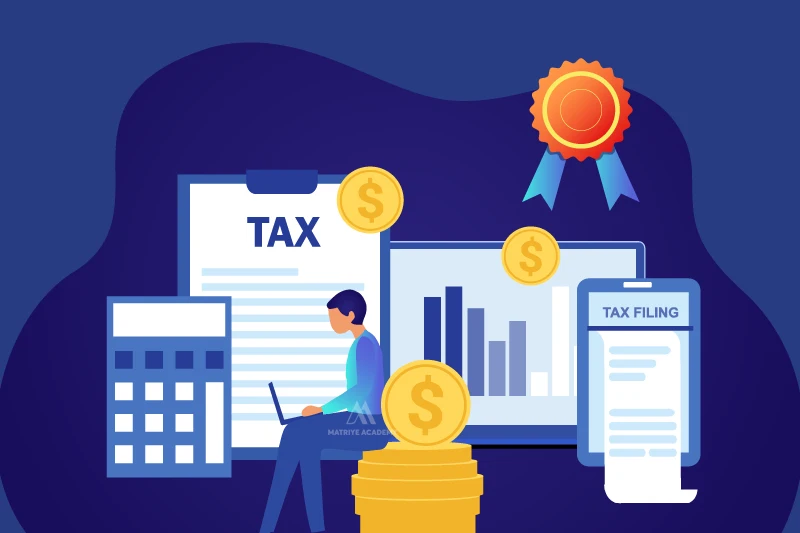
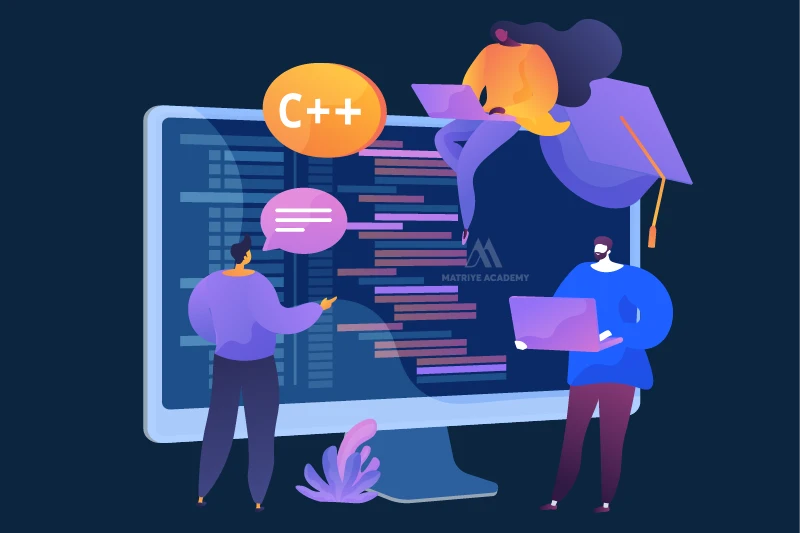

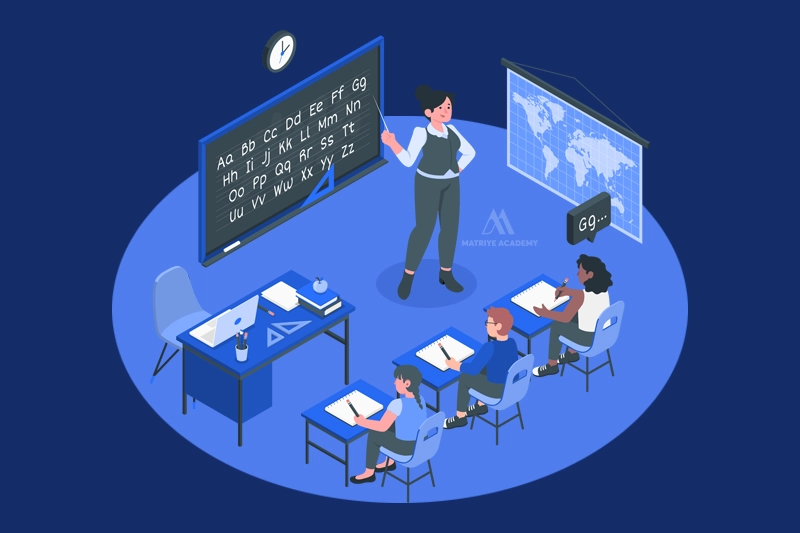















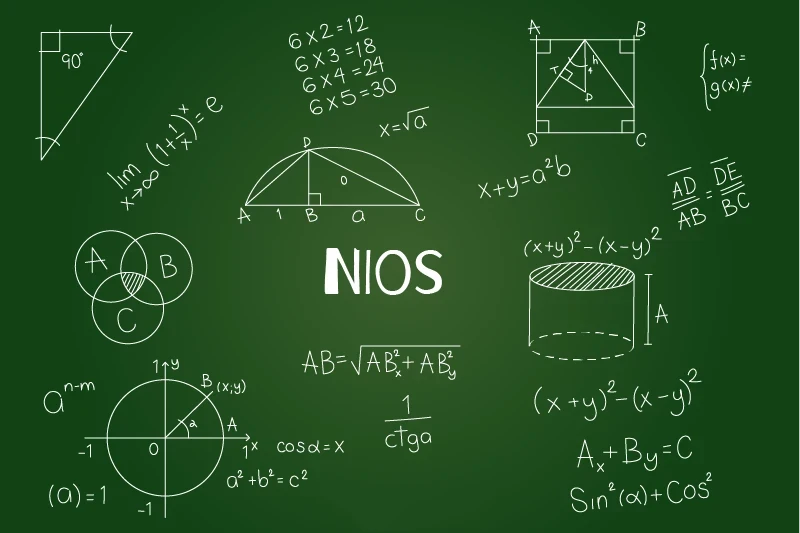


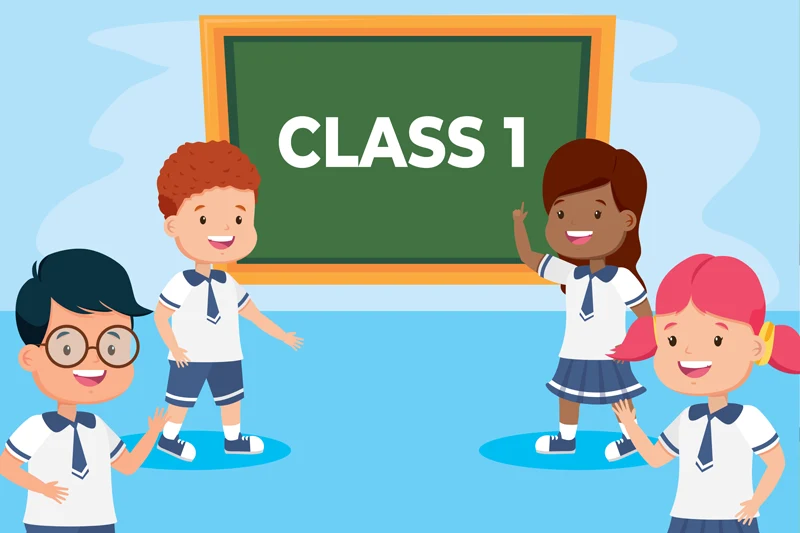
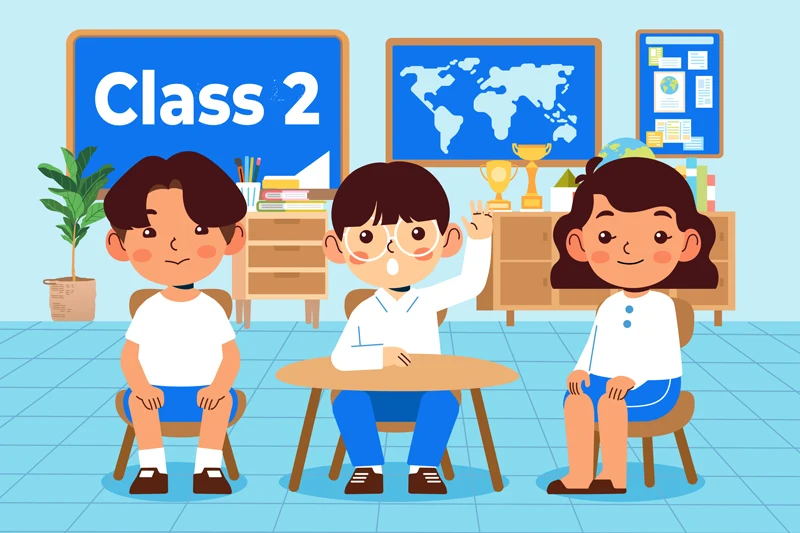
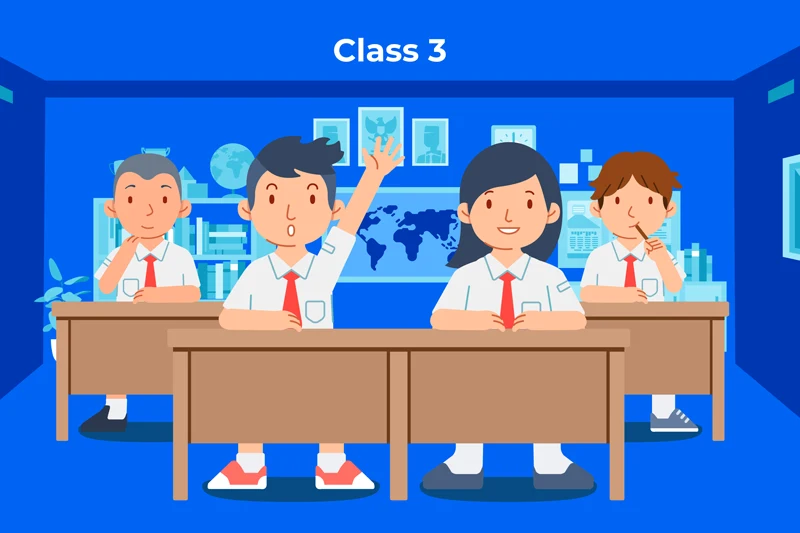
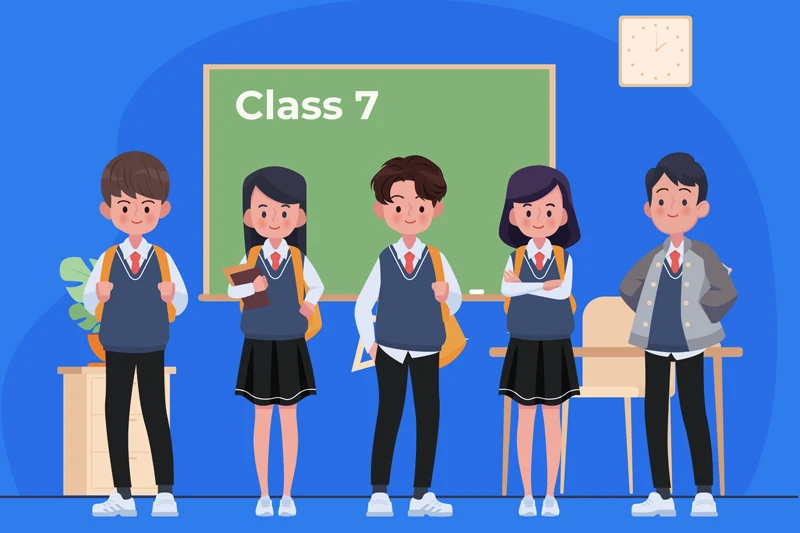

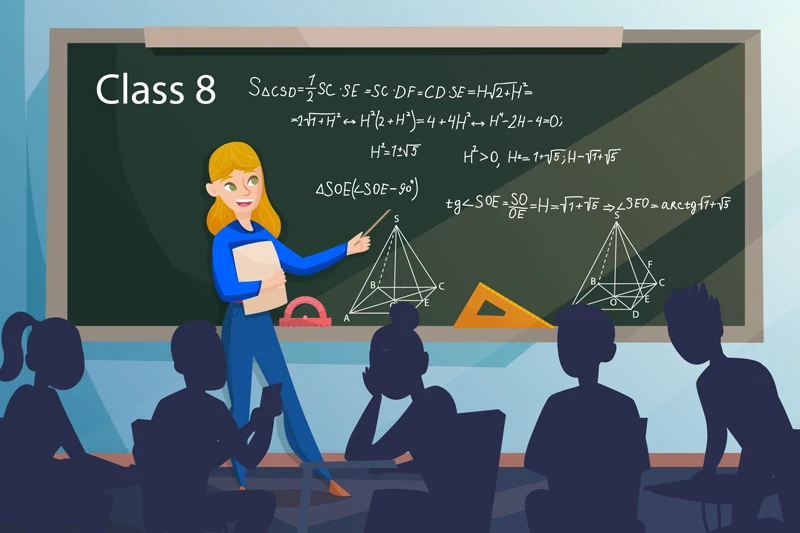




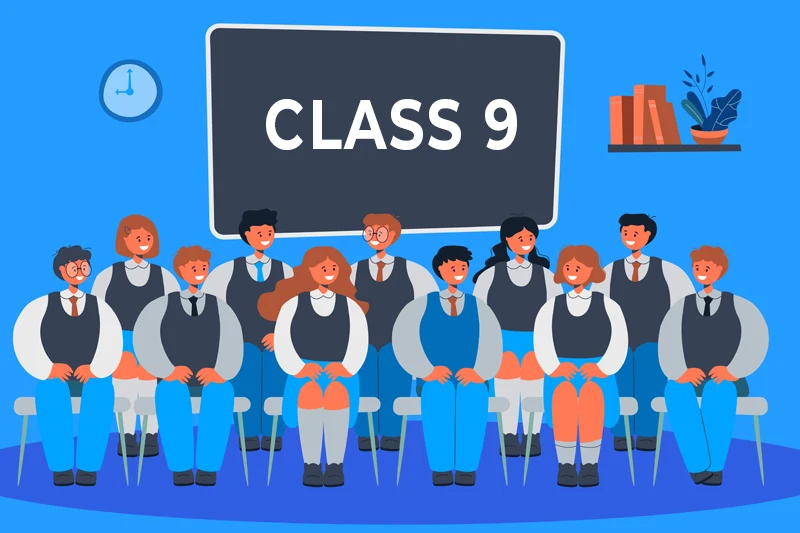





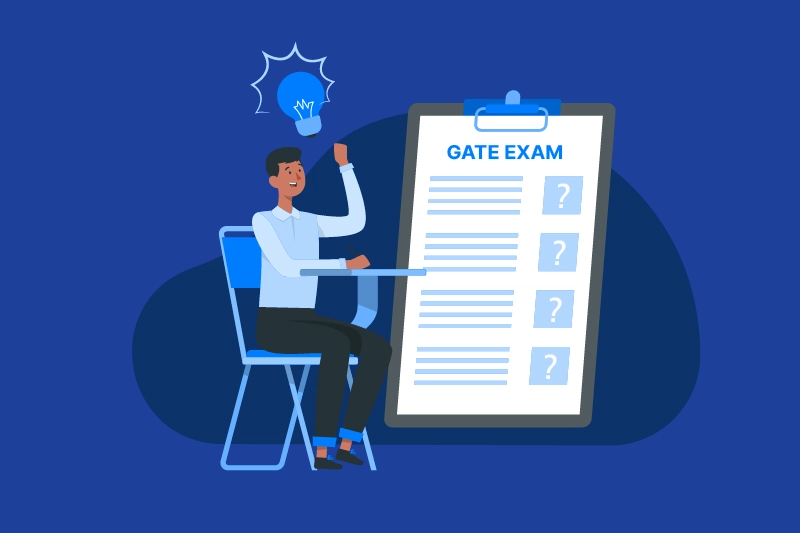
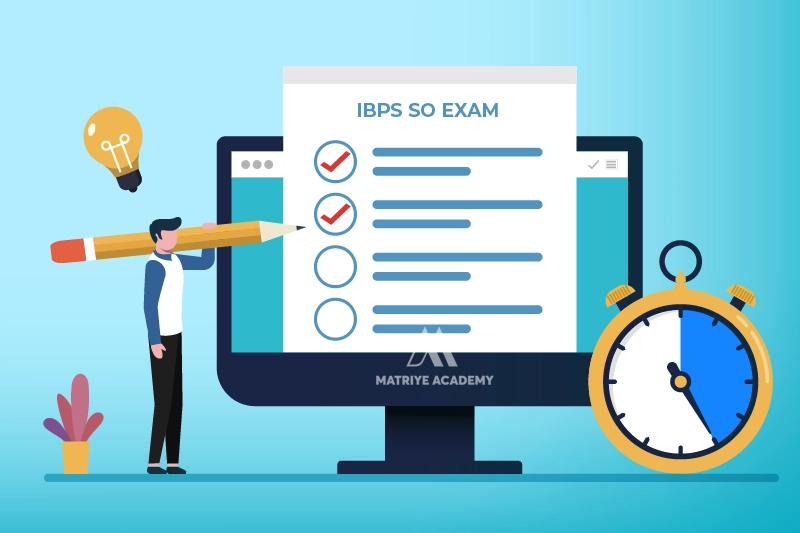
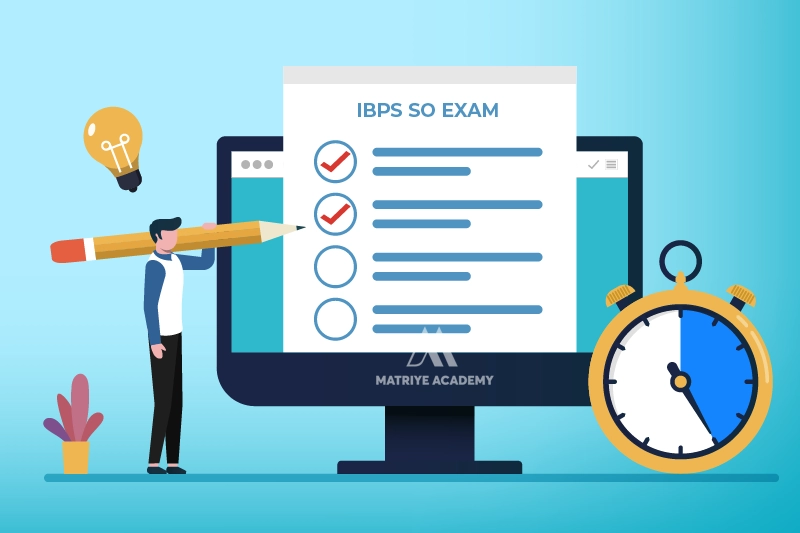

















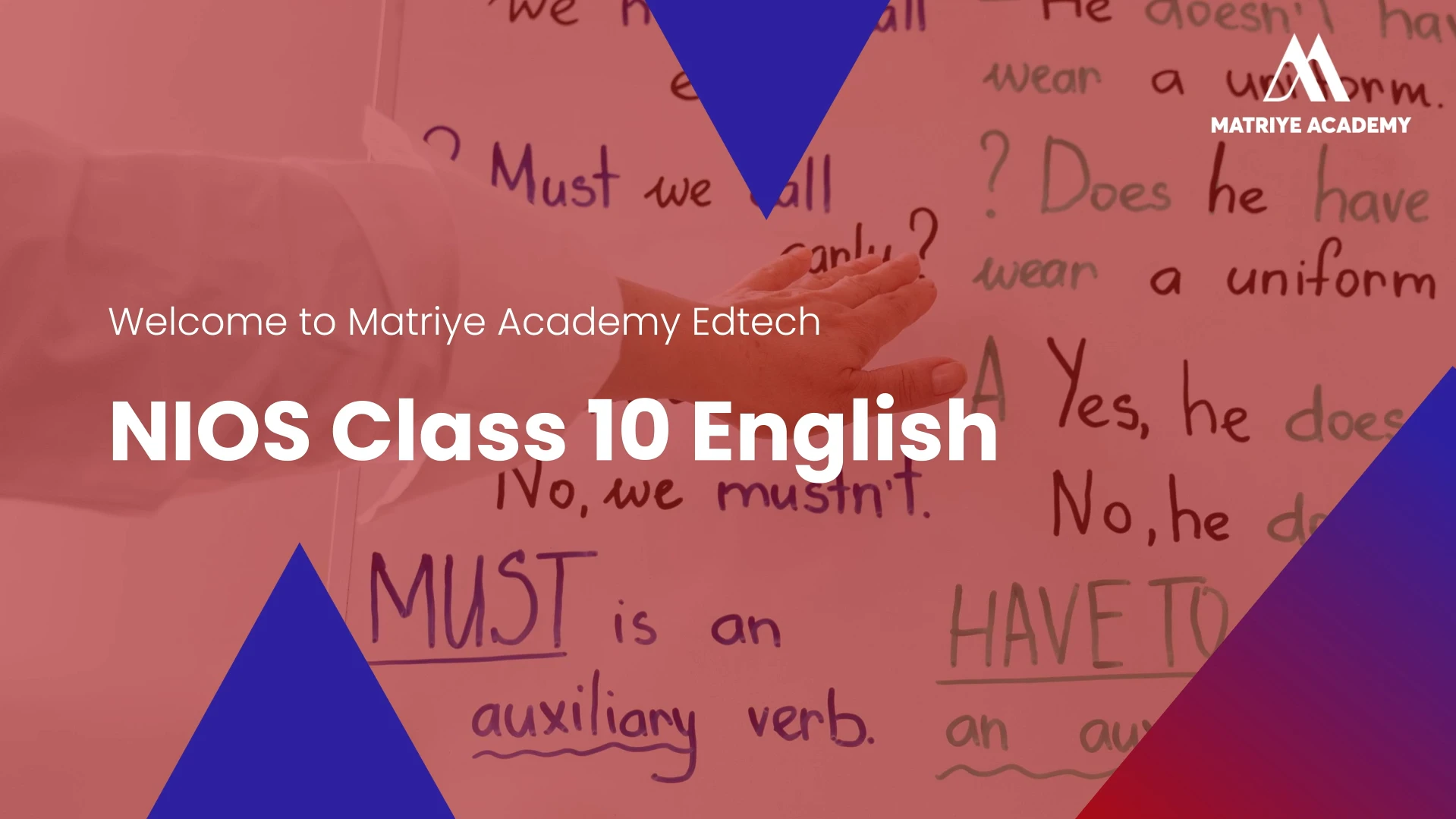



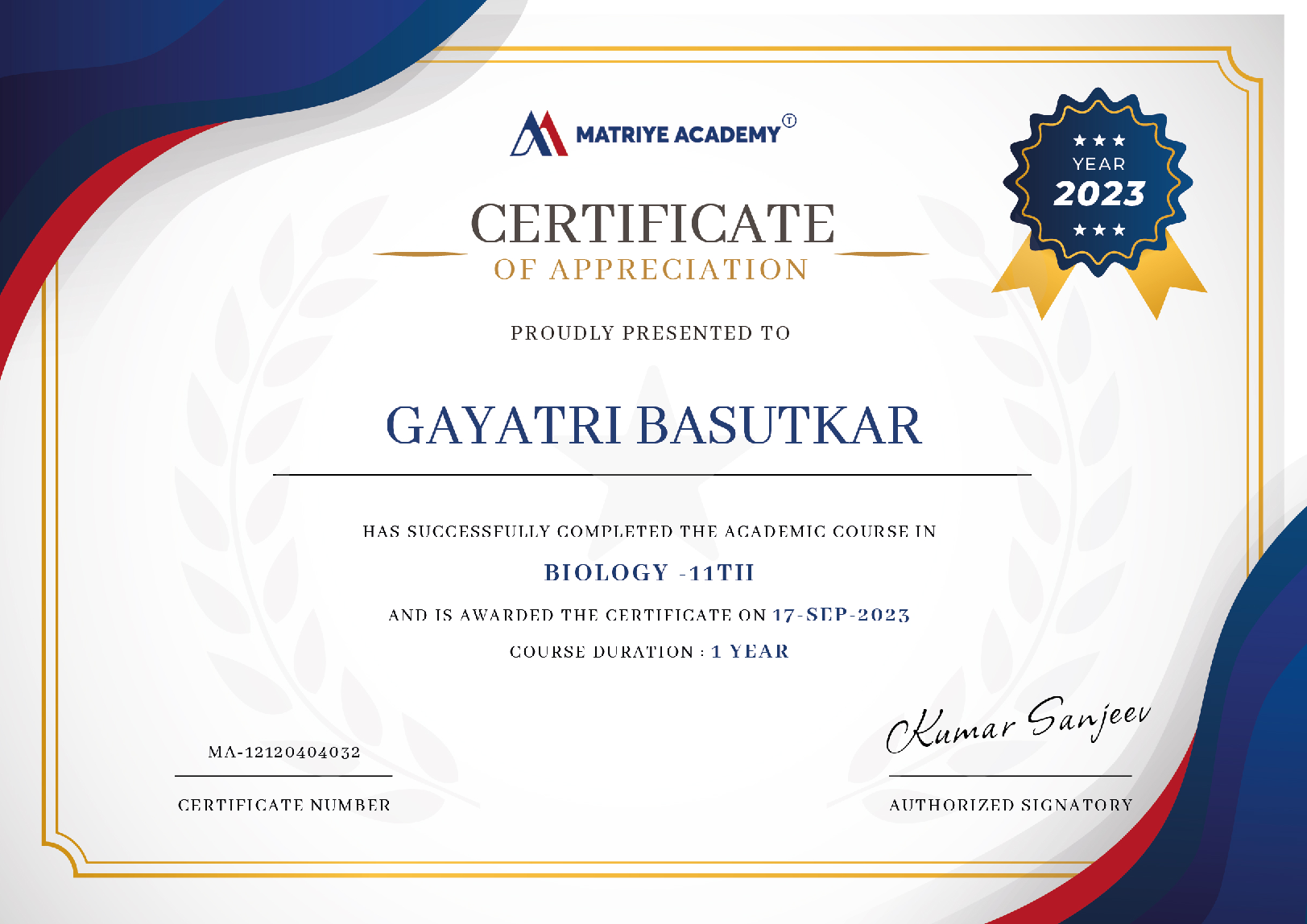
Leave A Comment